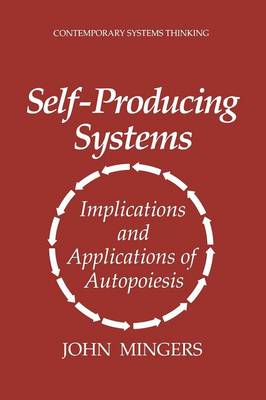Contemporary Systems Thinking
2 total works
This book deals with the contribution of a systems approach to a range of disciplines from philosophy and biology to social theory and management. It weaves together material from some of the pre-eminent thinkers of the day. In doing so it creates a coherent path from fundamental work on philosophical issues of ontology and epistemology through specific domains of knowledge about the nature of information and meaning, human communication, and social intervention.
John Mingers' new volume, Self-Producing Systems: Implications and Ap plications of Autopoiesis, is a much-needed reference on autopoiesis, a subject penetrating many disciplines today. I can genuinely say that I enjoyed reading the book as it took me stage by stage through a clear and easy-to-grasp understanding of the concepts and ideas of auto poiesis and then, as the book's title suggests, on through their applica tions. I found the summary in Chapter 12 particularly useful, helping to crystalize the main points of each chapter. The book conveyed enthusi asm for the subject and stimulated my interest in it. At times the book is demanding, but only because of the breadth of the subject matter, the terms and concepts associated with its parts, and the challenge of keep ing hold of all this in the mind at once. This is an exceptional text. ROBERT L. FLOOD Hull, UK Preface In recent years Maturana's and Varela's concept of autopoiesis, origi nally a biological concept, has made a remarkable impact not just on a single area, but across widely differing disciplines such as sociology, policy science, psychotherapy, cognitive science, and law. Put very briefly, the term autopoiesis connotes the idea that certain types of sys tems exist in a particular manner-they are self-producing systems. In their operations they continuously produce their own constituents, their own components, which then participate in these same production pro cesses.

